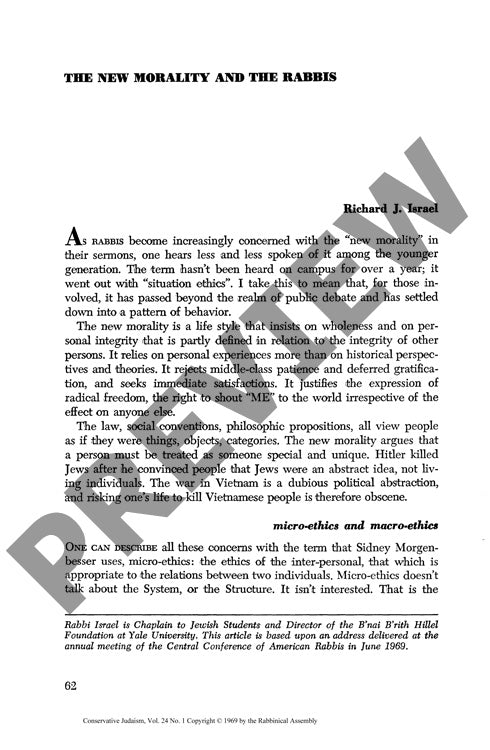The New Morality and the Rabbis
Couldn't load pickup availability
In the turbulent late 1960s, Jewish rabbis faced an unprecedented challenge: reconciling ancient religious teachings with a radical shift in moral consciousness among their congregants. As student concerns evolved from questions of personal conduct to demands for political action against the Vietnam War, a stark divide emerged between traditionalist and modernist rabbinical responses. Through comparative analysis of rabbinical approaches to issues ranging from premarital relations to violent resistance against government, this research reveals how both camps often departed from authentic Jewish textual interpretation. Traditionalist rabbis, while confident in applying halachic principles to interpersonal matters, struggled to address broader social issues lacking clear historical precedent. Modernist rabbis frequently aligned their positions with congregational attitudes rather than traditional sources. The methodology distinguishes between micro-ethics (interpersonal relations) and macro-ethics (political and social issues) to demonstrate how rabbinical authorities often unconsciously substituted contemporary liberal or conservative ideologies for genuine engagement with Jewish texts. These findings underscore the need for greater intellectual honesty in rabbinical discourse, particularly in distinguishing between authentic traditional teachings and personal interpretations. Effective moral leadership in modern Judaism requires acknowledging where traditional guidance reaches its limits while maintaining integrity in textual interpretation.

More Information
-
Physical Description
-
Publication Information
Published 1969
ISBN
-
Publication Credits
Richard Israel

